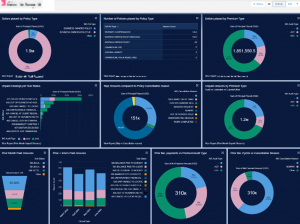Introduction
The wide world of debt collection is highly regulated and tricky to maneuver for those lacking experience in collections.
There are many laws, varying by state and industry, that need to be respected when trying to collect on past-due accounts.
These are the dos and don’ts of debt collection.
Do seek help from a third-party vendor.
While some business owners believe it’s cheaper to try to collect the debt themselves, it’s actually costlier (and riskier) than seeking help from a third party.
Outsourcing is not the enemy!
We all make decisions each day in our own lives about what jobs we have the time or inclination to handle ourselves and which ones make sense to “outsource.” Small and medium businesses do as well.
But, when it comes to utilizing a collection partner, I see companies every day holding on to delinquent accounts for entirely too long. The end result is lower collectability across the board. So why do it?
Most collection agencies also offer advanced tools for debt collection, like skip tracing.
Skip tracing is the process of locating a debtor who has “skipped” or left town, hence the name “skip tracing.”
This is especially helpful for cases in which the debtor hasn’t answered or returned repeated calls, emails and letters.
Don’t try to collect debts on your own without full knowledge of collection laws and regulations.
There are numerous laws, some differing by state, that govern the debt collection industry and well-informed debtors won’t hesitate to sue if they know a law has been broken.
After the infamous demise of Enron in 2001, the Sarbanes-Oxley Act was established to “protect investors by improving the accuracy and reliability of corporate disclosures made pursuant to the securities laws, and for other purposes.”
In short, debt collection agencies can assist your company’s ability to demonstrate a self-compliant financial accounting framework and controls as part of your Sarbanes-Oxley requirements.
This not only demonstrates due diligence but might reduce the overall consultancy costs.
Do have a plan in place for collection issues before they happen.
It’s always a good idea to prepare for the worst before it happens. For collections, you should have a plan in place for delinquent accounts just in case.
This can include a credit agreement or application that provides provisions for attorney’s fees, interest at the highest rate allowable and late charges.
In order to recover attorney’s fees, most courts require a written agreement signed by an authorized representative of the customer.
Having this document right away will make the litigation process easier if need be.
Don’t use threats or harassment to collect a debt.
Investopedia defines the Fair Debt Collection Practices Act (FDCPA) as “a federal law that limits the behavior and actions of third-party consumer debt collectors who are attempting to collect debts on behalf of another person or entity.”
In short, the FDCPA protects debtors from abusive, unfair or deceptive debt collectors.
However, contrary to popular belief, the FDCPA only protects consumer debtors, not commercial debtors.
Although there are currently no federal laws controlling commercial debt collection, most states have statutes that govern commercial debt collection.
Do use mail, email and phone to reach debtors.
Keep all correspondence between you and your customer.
Letters or emails received from your customers may admit the liability in question. Phone conversations should be followed up with a letter or email confirming the conversation.
A letter or email received from your customer that you do not agree with should be responded to delineating the reasons for the dispute.
Don’t write off large amounts of bad debt.
To determine the value of receivables written off to bad debt, you must first evaluate your current litigation policy.
More specifically, the receivables that do not meet your litigation threshold. It is these accounts that have basically received a “free pass” from additional collection steps when the collection agency fails to recover.
Since they were too small to sue, it is reasonable to say they have never heard from an attorney, nor felt the impending consequences or pressure to pay.
Do use litigation, if necessary.
A lawsuit is generally the last option that should be chosen in trying to resolve a dispute. This question of whether to file the lawsuit enters the mind of many people who are upset with a bad product or service, or breach of an agreement.
This article from collection attorney Don Leviton can help you decide when to file suit.
Before approaching suit, make sure your collection agency or attorney completes a thorough asset investigation and provides you with a complete history of the debtor’s payment trend and nature.
The report should include:
- State and federal tax lien information
- Pending litigation
- Bankruptcy information
- Unsatisfied judgments already in place
- Other collection actions being taken
- Secured creditor information
- Payment trends for the last six quarters
- Who they are paying and not paying
Additionally, review the collection notes on the case checking for dispute information not addressed.
Be sure to have them check the court costs in the jurisdiction where the suit will be filed.
Is the court backlogged? Do they require a company witness in person and for which proceedings? What are the costs associated to file suit? Is a countersuit possible? Are all contractual details and documents available? Is the company really in business?
Having this information will enable a fact-based decision increasing your odds for successful and profitable litigation.
Return on investment is the focus point. Losing money on litigation is not an option.
Don’t wait!
Don’t play the waiting game. If you’re playing, you’re likely losing.
One of the biggest factors impacting the collectability of outstanding accounts is age.
Statistics show that 90 days after the account is past due, you have less than a 75% chance of collecting it. The percentage quickly shrinks every passing month and after 12 months, there is only a 25% possibility of collection.
The age of outstanding accounts is something that can be easily adjusted. It is also a factor that is most impacted by a structured accounts receivable management program.
Without a concrete collection timeline, collection personnel will usually err on the side of holding an account too long rather than turning over early.
Conclusion
The debt collection industry is heavily regulated and can be tricky to navigate for those who aren’t familiar with it.
One simple mistake could result in an expensive lawsuit, which is why it’s best to leave debt collection to the experts at Brown & Joseph.





